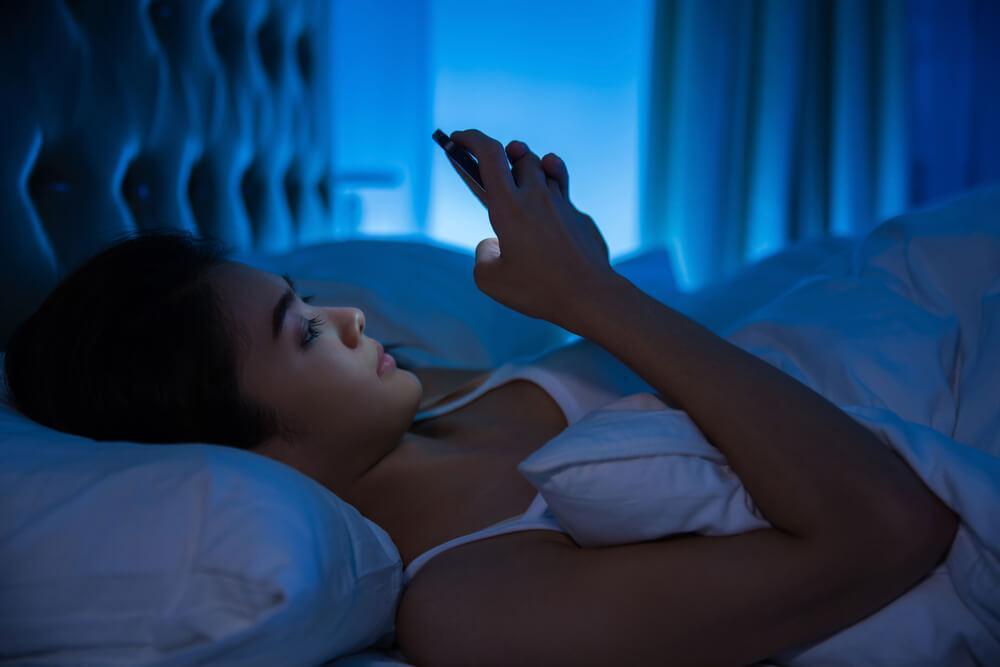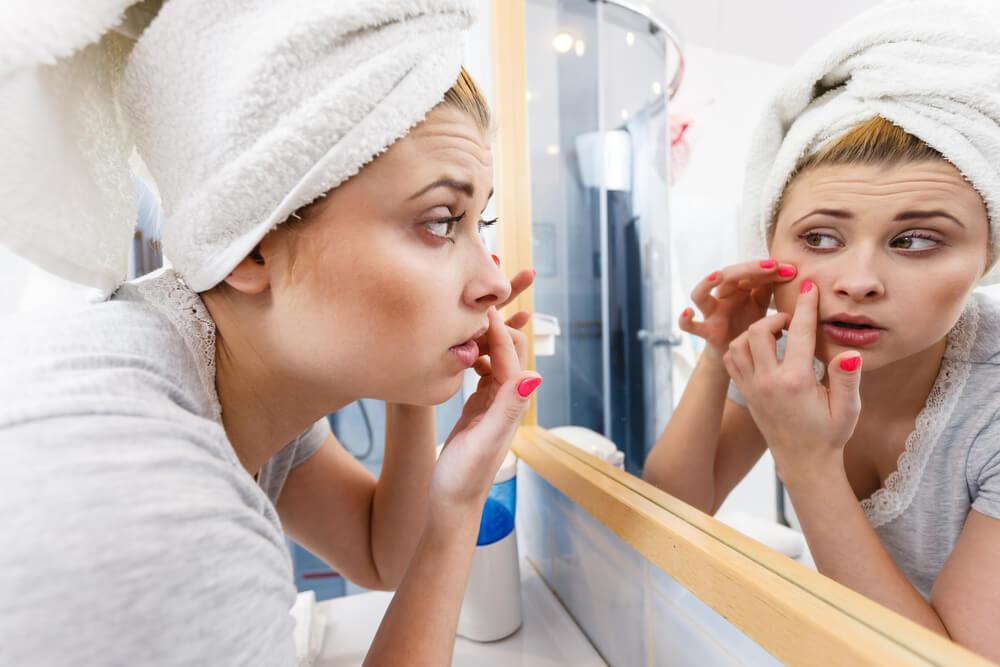In the present world, our relationship with our gadgets is so intense that it is hard to imagine how our lives would be without them. On the other hand, their impact on our lives, both positive and negative cannot be ignored. Just how much harm are we exposing ourselves to by using the digital devices? And does some of it end on our skin?
It is at this point that we reflect on whether we can enjoy the best of the digital world and remain healthy at the same time. But then there’s the so-called digital detox that is supposed to make it all right. So, what is this digital detox? And, does your skin need a digital detox? Let’s find out all about this.
What is a Digital Detox?
This is a period of time during which one takes a break from all digital or electronic devices. This is done with the aim of relieving the strain that comes from obsession with and overuse of these devices. It is also a great opportunity to interact with the real world physically.
How Would A Digital Detox Affect Your Skin?
Your skin is a good reflection of whatever is happening in your body. A digital detox is great for your overall health and whoever looks at you after one can tell from your skin that something good has happened. However, some aspects of a digital detox will impact your skin more than others. Here are the major aspects that your skin will directly benefit from
1) Reduced Stress
Most of the things that stress us out are directly or indirectly related to our digital connectivity. Think of social media content, phone calls, texts, email and television content on top of everything else in your life! Taking a break from some of it is definitely worth it.
Your skin will thank you for it because less stress means less breakouts and other stress related skin conditions. This also adds a relaxed glow to your skin.
2) Improved Sleep
As you will read below, the use of digital devices impacts your sleep pattern, an important factor in the health of your skin. It is easy to repair this away from these devices as your body can readjust to your normal sleeping schedule, after which you can sleep your way to beautiful skin.
3) Extra Time to Reflect and Plan
With your current lifestyle and with all the digital influence in your life, it is difficult to reflect and plan without interruption. Think of your skin for example, if it is one of the things that you are worried about, taking a step back and looking at all the things you could be doing wrong can help you plan on the steps to take to make them right.
The Effects of Digital Devices on Your Skin
The use of digital devices such as mobile phones, tablets and laptops can affect your skin directly or indirectly. Luckily, there are measures you can take to reduce the impact.
1) Reflected UV Exposure
Beside causing sun damage and skin aging, exposure to UV rays has been tied to increasing risk of skin cancer, precisely, 90% of non-melanoma cancer and a significant correlation to melanoma.
When we hear about UV exposure, you will most probably think of direct exposure to sunlight and you may even be quick to interject that you don’t venture outside when it is sunny or without wearing sunscreen.
This is a good practice and it is encouraged for the health of your skin. On the other hand, would you feel confident if you knew that your daily dose on UV exposure keeps increasing every time you use your phone in the sun?
According to the Journal of the American Academy of Dermatology, using electronic devices outdoors and especially in the sun significantly increases your exposure to UV light.
This was concluded in an experiment that involved putting commonly used electronic devices and a UV sensor on a stand. They were put at approximately the same angles that people usually put their phones, tablets, laptops and ebook readers when using them. This was compared against another glass stand with no devices. A foam mannequin head was used in the experiments.
Both experiments were done outdoors in a grass field and in the hour between 11:00 am and 12:00 noon. The sensor recorded an average increase of 95% in level of UV exposure reflected from the stand that contained the gadgets. This is considered statistically significant as far as skin health is concerned.
How to Deal with It
- Whenever you can, avoid using your phone outdoors and if you must, stay away from direct sunlight.
- Always wear broad spectrum sun screen
2) Skin Hyperpigmentation
Do you ever talk on the phone till your cheek burns from the overheated phone? Well, you might just be helping your skin to produce a little more melanin in the process. More melanin means more pigment at the point of contact which consequently leads to dark spots on your face.
How to Deal with It
- Whenever you are making or picking lengthy calls, use the speaker if you are in a private place or other hands-free options like an ear piece when in public.
3) Sleep Deprivation
What does sleep deprivation have to do with skin and digital devices? Sleep deprivation from devices may present itself through two different channels. First, the alertness and anxiety that comes with sleeping near your phone may cause you to not sleep well. This happens because subconsciously, you are expecting your phone to ring.
The other one is the blue light emitted by the screens of your devices. The light not only causes sleeplessness, but it also negatively affects your overall health. A research published by the Proceedings of the National Academy of Sciences, USA shows that exposure to the short-wavelength enriched light can suppress levels of melatonin, the hormone responsible for making you sleep or awaken.
Exposure to this light before bedtime could therefore disrupt your circadian rhythm, leading to insomnia (difficulty in sleeping). This is where your skin comes in; lack of sleep affects your skin in a number of ways:
- Formation of dark circles and puffy eyes
- It tires you out, this is evident in a haggard and dull skin
- When you are turning and tossing in bed, your beddings dry out your skin
- Levels of stress hormone, cortisol rises which may cause flare ups of acne
- High cortisol levels destroy collagen which make your skin age faster
How to Deal with It
- Avoid using your devices for at least 2 hours before going to sleep. If you must, make sure your screens are fitted with anti-blue light films and screen protectors. You can also use software such as f.lux to automatically adjust your screen based on the time of the day.
- Incorporate non-digital activities like reading a book or meditating before going to bed into your routine
- Keep electronic devices such as laptops, desktops and televisions out of your bedroom.
- Switch off mobile internet or disconnect your phone from Wi-Fi to avoid distractions before going to bed.
- Use tinted skin products that contain iron oxide. The compound is known to absorb all wave-lengths within the visible light range.
4) Toasted Skin Syndrome
Do you spend a lot of time with a laptop placed on your lap? You might be lying in wait for toasted skin syndrome.
Apparently, the heat from the laptop can’ toast’ and darken your skin, sometimes permanently. Several cases of the conditions have been reported. Besides denying you the opportunity to show off your ‘hot’ thighs, toasted skin syndrome is generally considered harmless. However, it can lead to skin cancers in very rare cases.
How to Deal with It
- Avoid placing the laptop on your lap but if you must, use a heat shield or a carrying case to protect your skin.
5) Allergic Contact Dermatitis
This skin condition, also known as ACD is triggered when your skin comes into contact with an allergen. It is characterized by a red itchy rash. It is common in children and adults all over the world.
Metallic culprits are usually chromium and nickel which can be easily picked from coins, zippers, buttons and jewelry among other common items.
However, since 2000, incidences of mobile phone ACD have been on the rise globally. The reaction has been associated with cutaneous interaction with the above metals.
Before you dismiss it as a condition associated with cheap phones, reports show that the condition is common with cheap and expensive phone alike; even phones covered under the EU Nickel directive.
How to Deal with It
- If your skin is sensitive, use a plastic case for it to prevent irritating your skin.
- Whenever you are making or picking long calls, use the speaker if you are in a private place or other hands-free options like an ear piece when in public.
6) Wrinkles and Crow’s Feet
If you are constantly staring down on your mobile phone or the screen of your laptop, you risk wrinkling around your neck and beneath your chin, not to mention the pain and the discomfort of a tech neck. It is even worse if you keep squinting to figure out or read the too small text on your phone; you and crow’s feet may soon become inseparable.
How to Deal with It
- Whenever you spend extended amount of time using your devices, maintain proper posture. Keep your cellphone at eye level, hold your chin up and ensure the text on your screen is large enough to avoid squinting. This will help you prevent further wrinkling of your skin. If you already have some, you might want to concentrate more of your anti-aging products on the neck and décolletage.
7) Skin Breakouts
How often do you clean your phone, keyboard or tablet?
Research shows that those surfaces could be home to hundreds of germs (read more than a toilet seat contains) which you transfer to your skin every time your phone touches it or every time your hands move from the devices to your face.
And you are probably wondering why you keep getting breakouts despite having an excellent skin care routine in place!
How to Deal with It
- Keep your phone, keyboards and other devices clean, preferably with antibacterial wipes to avoid transferring germs to your skin. While at it, your hands should also be clean.
Does your skin need a digital detox? Have you tried it? Let us know in the comments below!









Leave A Comment